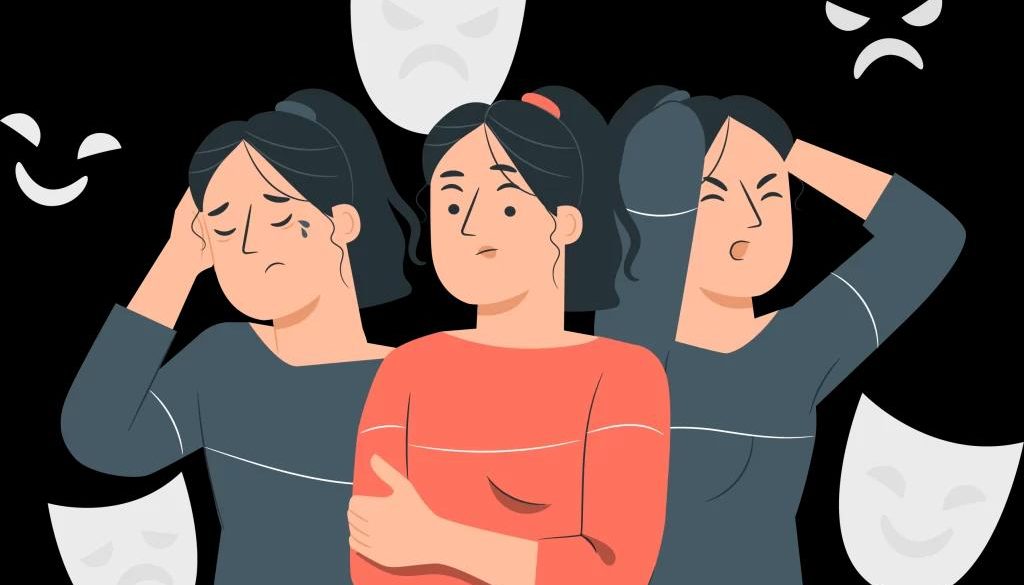Dissociative disorders
Dissociative disorders are a group of mental health conditions characterized by a disconnection or separation from one’s thoughts, feelings, or experiences. This can manifest in different ways, such as:
– Dissociative amnesia: forgetting important information or events
– Dissociative fugue: sudden, unexpected travel away from home or work, often accompanied by a loss of memories
– Dissociative identity disorder (DID): presence of two or more distinct identities or personality states
– Depersonalization disorder: feeling detached from oneself or one’s body
– Dissociative disorder not otherwise specified (NOS): symptoms that don’t fit into one of the above categories
Dissociative disorders often develop as a coping mechanism in response to trauma, stress, or other forms of adversity. Treatment typically involves therapy, such as cognitive-behavioral therapy (CBT) or trauma-informed therapy, to help individuals process and integrate their experiences.
Some common symptoms of dissociative disorders include:
– Feeling disconnected from oneself or others
– Memory lapses or gaps
– Identity confusion or fragmentation
– Feeling like you’re observing yourself from outside your body
– Difficulty coping with stress or emotions
If you or someone you know is experiencing symptoms of a dissociative disorder, it’s essential to seek professional help from a mental health expert. With proper treatment and support, individuals with dissociative disorders can learn to manage their symptoms and improve their overall well-being.



